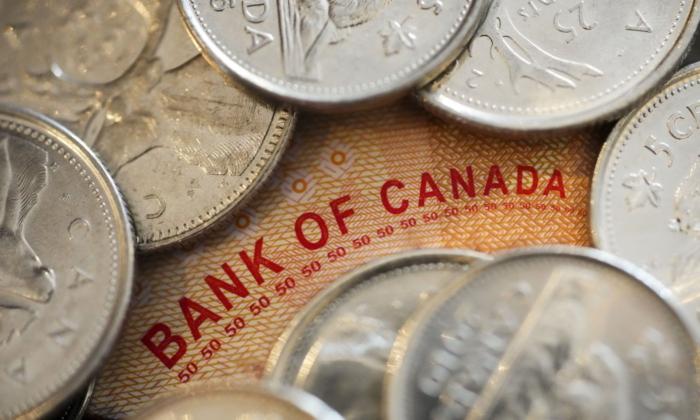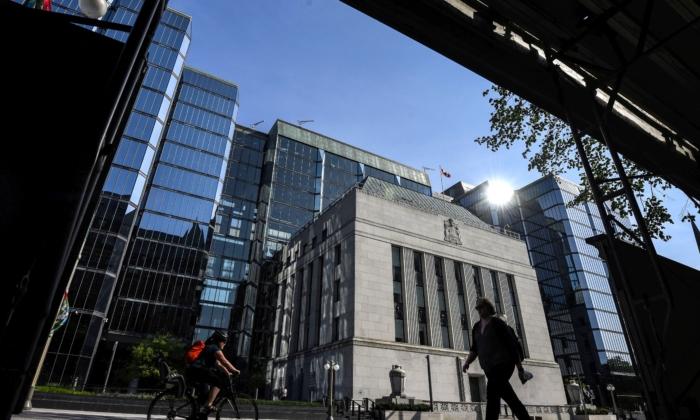News Analysis
The United States has enlisted Canada in a bid to wrest global control of rare earth elements (REEs) from China. The elements—which technically aren’t rare—are needed to make critical components used in various applications including consumer electronics and fighter jets. And China, which accounts for over 70 percent of the world’s production, has not hesitated to use its monopoly in REEs to enforce its geopolitical interests.
China threatened to withhold exports of REEs last May as the trade war with the United States began heating up. In 2010, China restricted exports to Japan during a dispute over the Senkakku Islands.
A Dec. 18, 2019, statement from Natural Resources Canada confirmed the signing of a memorandum of understanding with the United States—the start of a joint action plan for collaboration on critical minerals. The signing builds on a commitment dating back to June 2019 between the nations’ two leaders to work together on securing supply chains for REEs.
The REEs are a group of 15 elements plus two others that exhibit similar properties and are always found in the same ore bodies. Their predominant use is in the making of certain types of magnets.
REEs are called “rare” since they’re hardly ever found in concentrated, easily extractable deposits; therefore some industry observers and participants are calling for governments to subsidize their production.
Fighting Subsidies With Subsidies
“China has us by almost a noose. … They’ve weaponized rare earths and it’s a really scary thing to think about,” David Wilcox, advisory board member of Central America Nickel, recently told NTD Television.
The Canadian company has developed innovative extracting techniques for rare earths that could help break China’s hold, but it has never focused on the problem due to the low value of REEs and the threat of China driving down prices to put foreign competitors out of business. Other companies focus on recycling REEs from old devices.
“If we want to fight China in that battle, we’re going to need help from the government to subsidize it so we can have a fair market price,” Wilcox said.
One of the reasons the United States is taking China to task via the trade war is to get the Chinese regime to stop subsidizing its companies, which impairs fair competition in a variety of markets that U.S. companies aim to participate in.
China has been able to maintain dominance in REEs by disregarding the environmental standards of the West and using its state-owned enterprises (SOEs) to undercut and bankrupt foreign companies. China is well-known for using its SOEs to gobble up market share with only a secondary consideration for profitability.
“China’s definitely subsidizing it already because it’s not an all-encompassing, profitable business for them to be in,” Wilcox said.
This means Western governments need to backstop contracts and guarantee prices that would justify investment in mines and processing facilities in North America and beyond “in the face of Chinese market manipulation,” wrote Joseph Quesnel in a December 2019 Macdonald-Laurier Institute (MLI) op-ed.
“National security and broader national interests of Canada, and indeed all of North America, create a moral imperative to act,” wrote Quesnel, former program manager of MLI’s Aboriginal Canada and the Natural Resource Economy project.
Jack Lifton, founding principal of Technology Metals Research, told BNN Bloomberg that the United States and Canadian capital markets could potentially invest in the development of mines.
“This is a time situation—what deposits in North America can be brought online in a reasonable time,” he said.
In Canada, it’s not about how big the deposits are but how soon they can be brought into production, said Lifton, adding that the United States is in a “large information-gathering stage” about Canadian capabilities with REEs.
For Canada, the Time to Act Is Now
The United States used to be the world’s largest supplier of rare earths until the mid-1990s, when China started taking over. China was virtually the world’s only supplier until 2012, when the now-bankrupt U.S. producer Molycorp Inc. and the Australian company Lynas Corp. Ltd. began production.
The United States is hamstrung. It currently has one operating rare earth mine, in Mountain Pass, California, but all of its ore is shipped to China for processing under a contract. It is reaching out to allies like Australia, Japan, and the European Union, which all fear being dependent on China for the key minerals.
The United States is also lagging other countries in securing REEs that occur in nodules at the bottom of the Pacific Ocean, as shown in a 60 Minutes feature.
Now it’s up to Canada to work with and help the United States to regain the strategic advantage, wrote Quesnel. He adds that Canada should be a world leader in chipping away at China’s grip on the sector, given that it has some of the world’s largest reserves of REEs.
Canada was aware of the REEs quandary back in 2014 when a House of Commons committee on natural resources produced a report on the industry and called for government action. But nothing came to pass. Canada is not producing rare earths currently; however, it does host exploration projects.
Canada has an estimated 15 million tons of rare earth oxides—mostly in Quebec, but with substantial deposits elsewhere in the country.
The market for rare earths is small, unlike other well-known commodities like gold or oil. The minerals’ strategic importance appears to outweigh their pure economic value.





